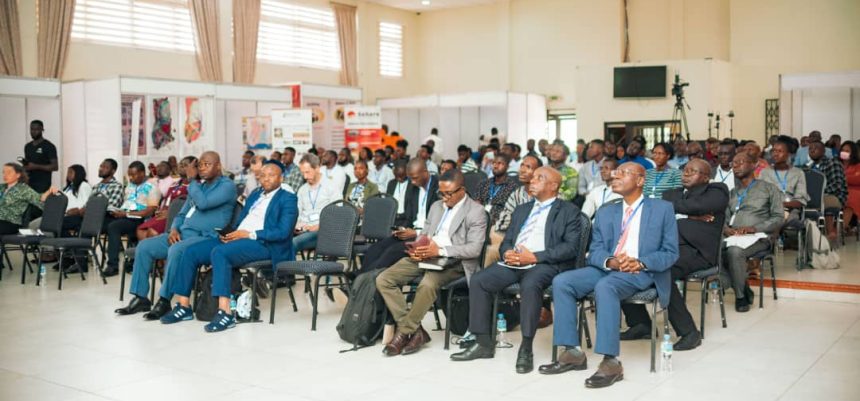NEWS
UG: Earth Science Department organizes 5th colloquium of International Geoscience Programme
The Department of Earth Science of the University of Ghana has organized the 5th Colloquium of the International Geoscience Programme, IGCP 638.
This feat sets Ghana as the first-ever anglophone west African country to hold the top-level conference.
The past four episodes were held, first in Dakar (Senegal) in December 2016, followed by Casablanca (Morocco) in November 2017, Abidjan (Cote d’ Ivoire) in October 2018, and lastly in Algiers (Algeria) from late October to early November 2019.
The outbreak of the COVID-19 pandemic in 2020, however, fueled the cancellation and postponement of the coveted conference then.
Speaking at the opening ceremony on the theme, Geodynamics and mineralization of the Paleoproterozoic formations for sustainable development, Dean of the School of Physical and Mathematical Sciences, Prof. Sandow Mark Yidana seized the opportunity to welcome international guests, academics, industry players and graduates to the conference.
He highlighted the leadership role of the premier University in spearheading Geoscience research and capacity building for the past decade in Ghana.

Delivering a message on behalf of the Vice Chancellor of the University and the provost of the College of Basics and Applied Sciences, Prof. Sandow reiterated the blessings of geological resources as part of the nation’s economic growth.
“We cannot underestimate the role of a Geoscientist in the discussion of sustainable development using geological resources. For over a century now, the economic development in this country has been fed by the exploitation of Gold, bauxite, manganese, Diamond and other geological resources and recent discovery of hydrocarbons resources in commercial quantity. After many years of exploitation Ghana is yet to reap the full benefit of the economic development. This has been aggravated by unfavourable policies over the years,” he stated on December 5, 2022 at ISSER auditorium, University of Ghana.
In a welcoming address, President of the local organising committee, Dr. Prince Ofori Amponsah noted that the programme serves as a knowledge hub of UNESCO to facilitate international scientific cooperation in the geosciences.

According to him, the conference is expected to, among others, generate active exchanges between the actors of the field and produce scientific knowledge on the geology of the West African Craton for the benefit of academia and facilitate mining exploration.
Head of Department of Earth Science (UG) and chairperson for the event, Prof. Larry Pax Chegbeleh urged participants to network since the conference brings together a wide range of academics and industry players.

Vice President of the Local Organising Committee, Dr. Daniel Kwayisi shared a sincere apologetic letter from International convenor and Project coordinator for the West African Exploration Initiative (WAXI), Professor Mark Walker Jessell who could not physically attend the conference due to reasons beyond control.

“I am very sorry that I am not able to attend this important event and listen to the impressive family of thoughts that will be presented here. I am even more disappointed that i will not be able to meet up with friends and colleagues from across west Africa and indeed across the globe. Now that the world is able to travel again, I am sure there will be many opportunities for us to meet up in the near future. Yours sincerely,” part of the letter reads.
On his part, National General Secretary of the Ghana Institution of Geoscientists (GhIG), Crisler Akwei Ankrah revealed that the institution is at the finishing stage of an Act to regulate the practice of Geoscience, the development and welfare of its members in the country.

He added that GhIG is undergoing all necessary processes to secure a parliamentary approval of the Act for subsequent implementation.

The IGCP 638 Accra 2022 was sponsored by UNESCO, Agate Project and Atlantic Lithium.

The conference was held in partnership with the West African Exploration Initiative (WAXI), Université de Rennes 1, International Union of Geological Sciences and University of Ghana’s Department of Earth Science.
Source: University of Ghana Legon Website

